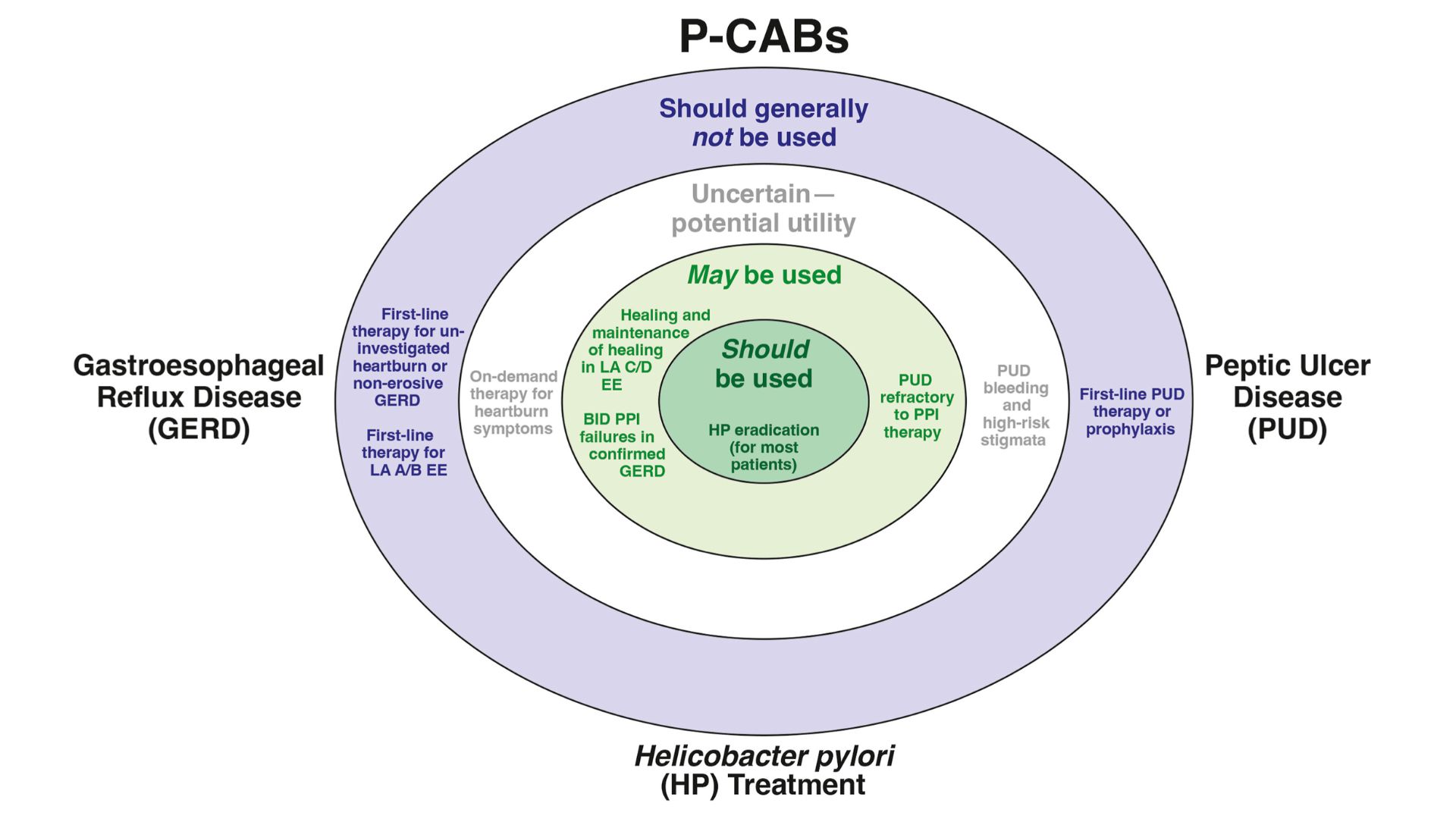AGA’s latest Clinical Practice Update offers nine pieces of best practice advice for using P-CABs in managing upper digestive disorders, including GERD, H. pylori infection and peptic ulcer disease. P-CABs, such as vonoprazan and tegoprazan, are a newer class of antisecretory medications getting approval for use in the United States. These medications act faster and last longer than proton pump inhibitors (PPIs), and they do not need to be taken before meals.
Key takeaways
P-CABs are a promising therapeutic option for patients with GERD and H. pylori infection, given their potential for more potent acid suppression than PPIs. However, given availability, costs, and safety data, they should not typically represent the first choice for treating all patients with heartburn or acid-related disorders.
- In eradication regimens for most patients with H. pylori infection.
- For patients with more severe erosive esophagitis (Los Angeles grade C/D) and patients with documented GERD who fail twice-daily PPI therapy.
- As first-line therapy for patients with uninvestigated heartburn symptoms, nonerosive reflux disease, milder erosive esophagitis (Los Angeles grade A/B), or peptic ulcer disease.
- For on-demand treatment of reflux-associated heartburn symptoms.
- For patients with bleeding gastroduodenal ulcers and high-risk stigmata of hemorrhage.
Drs. Amit Patel and Loren Laine discuss other key takeaways for clinicians on using P-CABs in this short video.
Read the full AGA Clinical Practice Update on integrating potassium-competitive acid blockers into clinical practice, published in the November issue of Gastroenterology.












